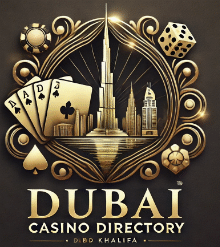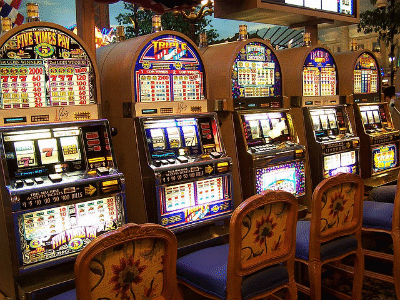
Casinos in Dubai

Casinos in Dubai: Present Realities and Evolving Opportunities
 Dubai, a city renowned for its futuristic skyline, opulent lifestyle, and world-class tourism offerings, has never shied away from pushing boundaries. Yet, when it comes to the topic of casinos and gambling, the emirate has traditionally upheld a conservative approach, rooted in the cultural and religious foundations of the UAE. At present, no legal casinos operate in Dubai due to the prohibitions of Islamic law. However, with a growing focus on international tourism and luxury entertainment, the narrative around gambling may be on the brink of transformation.
Dubai, a city renowned for its futuristic skyline, opulent lifestyle, and world-class tourism offerings, has never shied away from pushing boundaries. Yet, when it comes to the topic of casinos and gambling, the emirate has traditionally upheld a conservative approach, rooted in the cultural and religious foundations of the UAE. At present, no legal casinos operate in Dubai due to the prohibitions of Islamic law. However, with a growing focus on international tourism and luxury entertainment, the narrative around gambling may be on the brink of transformation.
Gambling Laws in Dubai: A Snapshot of the Current Landscape
As it stands, Dubai offers no physical casinos or formally recognized gambling venues. Nonetheless, the city thrives as a luxury hub, featuring a wide array of high-end entertainment experiences. Upscale resorts and five-star hotels regularly host glamorous events, prize raffles, and promotional sweepstakes that mimic the thrill of gaming without breaching local laws. These initiatives maintain the allure of chance-based excitement while staying within legal boundaries.
Luxury Resorts as Future Casino Hosts
Several luxury hospitality brands are already deeply rooted in Dubai’s resort scene, each contributing to a sophisticated atmosphere that would be an ideal match for casino-style experiences in the future.
Caesars Palace Resorts operates an opulent beachfront property on Bluewaters Island, combining indulgence and iconic branding—but notably without a casino. Industry observers believe that Caesars Palace Dubai could be a front-runner to host one of the emirate’s first legal casinos, should policy changes allow it.
MGM Resorts, another globally recognized name in gaming and luxury hospitality, is also planning to enter the Dubai market. The MGM-branded development is expected to feature upscale hotels, entertainment venues, and possibly even casino components if regulations evolve. The presence of MGM Resorts signals confidence in Dubai’s potential as a high-end gaming destination.
Meanwhile, Bulgari Resorts, known for elegance and exclusivity, already draws a wealthy international clientele with its ultra-luxurious hotel in Jumeirah Bay. Though not associated with gambling, Bulgari’s appeal to affluent travelers makes it a fitting player in any future upscale casino ecosystem.
Banyan Tree Resorts, which recently took over the management of a luxury hotel on Bluewaters Island (formerly run by Caesars), also exemplifies Dubai’s commitment to aligning wellness, relaxation, and lavishness under one roof. Should gambling become legal, Banyan Tree Resorts might expand their portfolio to include elite gaming offerings, harmonizing nature-inspired luxury with casino glamour.
The Rise of Online and Mobile Gaming
While traditional casinos remain off-limits, online gaming has become a popular alternative among residents and tourists alike. Many engage with international online casinos offering real-money games such as blackjack, roulette, poker, and live dealer formats. The proliferation of mobile-friendly platforms has made digital gambling more accessible than ever, allowing users to enjoy high-stakes games from their smartphones or tablets, discreetly and conveniently.
The Economic Upside of Legal Casinos in Dubai
Integrating regulated casinos into Dubai’s tourism infrastructure—via partners like the Dubai Casino Directory—could unlock significant financial gains. Dubai already attracts millions of tourists annually; offering gaming options would further diversify its entertainment portfolio and appeal to an even broader global audience, particularly high rollers.
Casinos would also create thousands of new jobs in various sectors, including hospitality, gaming management, security, marketing, and live entertainment. This could fuel growth in both the public and private sectors while cementing Dubai’s status as a premier global destination.
Revenue Opportunities for Government and Society
From a fiscal standpoint, legal casinos would generate substantial tax revenue. Funds collected through gaming licenses, corporate taxes, and tourism levies could be reinvested in critical public services, urban development, and cultural initiatives. If managed transparently and ethically, this revenue stream could rival the successes seen in Las Vegas, Macau, and Singapore.
What’s Next: A Turning Point for Casinos in the UAE
The prospect of Dubai hosting its first legal casino appears more realistic than ever. While Caesars Palace Dubai remains a likely candidate for such a venture, all eyes are currently on Ras Al Khaimah, where Wynn Resorts is building a massive integrated resort expected to include the UAE’s first officially licensed casino. This development could act as a catalyst for further policy shifts within the federation—paving the way for Dubai to follow.
Given the active involvement of iconic brands like MGM Resorts, Caesars Palace Resorts, Bulgari Resorts, and Banyan Tree Resorts, Dubai is well-positioned to develop a luxury-driven gaming sector unlike any other in the world. While the future of gambling in the emirate remains uncertain, the pieces are slowly coming together.
Tourist Demand and Regional Competition
The demand for high-end casino experiences is undeniable. Tourists from Europe, Asia, and the GCC region are increasingly seeking destinations that offer integrated luxury, entertainment, and gaming. If Dubai were to legalize casinos, it could surpass regional competitors such as Bahrain or even Egypt in terms of attractiveness and revenue generation.
With premium resorts and world-class infrastructure already in place, Dubai holds a unique advantage: the ability to launch a casino scene that is both upscale and culturally sensitive—setting a global benchmark.
Sustainability and Responsible Gaming Measures
Should gambling be legalized, Dubai is likely to implement rigorous compliance measures, including responsible gaming programs, anti-money laundering protocols, and age restrictions. Drawing inspiration from models in Singapore and Monaco, the UAE could adopt a framework that ensures safety, transparency, and sustainability in the gaming industry.
Frequently Asked Questions (FAQs)
1. Are there any legal casinos currently operating in Dubai?
No, there are currently no legal casinos operating within the city of Dubai. The UAE enforces Islamic law, which prohibits gambling in any form, and Dubai adheres strictly to these regulations. While luxurious resorts such as Caesars Palace and Bulgari offer entertainment, dining, and exclusive experiences, none of them operate as gambling venues. Visitors can, however, participate in activities like raffles or prize draws, which are legally permitted. These events offer a sense of chance without falling under the official definition of gambling. Any form of traditional casino gambling remains banned within Dubai city limits.
2. Is online gambling allowed for residents and tourists in Dubai?
Technically, online gambling is not legal in the UAE, including Dubai. However, many residents and tourists access international online casinos that are not based within the country. These platforms offer a wide variety of games, such as slots, blackjack, poker, and live dealer games. While the authorities generally focus enforcement on operators rather than individual players, accessing such sites still carries a legal risk. VPNs are often used to bypass restrictions, though this also exists in a legal gray area. Users should be aware that any gambling activity, online or offline, remains officially prohibited under UAE law.
3. What resorts in Dubai could potentially host casinos in the future?
Several major international hospitality brands are already well-positioned to introduce casino gaming, should the legal framework change. Caesars Palace Dubai, already associated with gaming worldwide, is considered a potential pioneer due to its scale and brand identity. MGM Resorts is planning a grand development on Dubai’s waterfront, which could seamlessly incorporate casino elements. Bulgari Resorts and Banyan Tree Resorts attract high-net-worth individuals and provide the level of sophistication expected in a regulated casino environment. Each of these properties already delivers premium services and could quickly adapt to integrate gaming facilities if regulations permit.
4. Is there any progress towards legalizing casinos in the UAE?
Yes, there are signs that the UAE is gradually reconsidering its stance on casino gambling. The most notable development is the Wynn Resorts project in Ras Al Khaimah, which is set to open the first legal casino in the UAE. This bold step has sparked speculation that Dubai and other emirates may follow suit in the coming years. The creation of a federal Gaming Regulatory Authority in 2023 further indicates a move toward a structured legal framework. While Dubai has yet to confirm any concrete plans, the overall momentum suggests change is on the horizon. Industry experts believe that selective legalization is likely, particularly in zones tailored for international tourism.
5. What economic impact could legal casinos have in Dubai?
The introduction of legalized casinos in Dubai could significantly boost the emirate’s economy. Casinos would attract high-spending international tourists, diversify the tourism portfolio, and increase average visitor expenditure. In addition, the industry would create thousands of jobs in hospitality, security, IT, finance, and marketing. The government could benefit from tax revenue and licensing fees, which could be reinvested in infrastructure and social services. Dubai’s world-class resorts already provide a strong foundation for such expansion. Overall, casino legalization could help position Dubai as a premier global destination for luxury entertainment.
6. Would casino operations in Dubai follow international standards?
If Dubai were to legalize gambling, it is highly likely that any future casino operations would be held to strict international standards. The UAE would be expected to implement robust regulatory mechanisms, including anti-money laundering policies, responsible gaming initiatives, and customer protection laws. Examples from countries like Singapore, Monaco, and Macau would serve as benchmarks. These frameworks balance economic benefit with ethical considerations and community safety. Dubai’s reputation as a highly controlled and organized city suggests that a similar approach would be adopted. Regulations would ensure only reputable operators are allowed to run such facilities.
7. How would Dubai balance cultural values with legalized gambling?
Introducing casinos in Dubai and a Dubai Casino would require a delicate balance between economic ambition and cultural sensitivity. Gambling remains a controversial topic due to the religious and social values of the region. Any future legalization would likely include restrictions—such as only allowing tourists to gamble, or operating in designated zones. Cultural messaging and community engagement would be vital in managing public perception. Dubai has previously introduced progressive policies with careful planning and clear boundaries, such as in areas of tourism, dress codes, and nightlife. A similar approach could ensure that casinos coexist with the city’s broader identity and values.
Conclusion: The Future of Casinos in Dubai
The topic of casinos in Dubai is rapidly evolving, driven by regional shifts and global tourism trends. While gambling remains illegal today, the emirate is showing signs of softening its stance, particularly as neighboring emirates embrace new opportunities. With iconic resorts like Caesars Palace, MGM Resorts, Bulgari, and Banyan Tree already operating in Dubai, the city is more than ready for a high-end gaming scene. The economic benefits of legalizing casinos are undeniable—from increased tax revenues and job creation to attracting affluent travelers from around the world. Online gambling continues to flourish in a legal gray area, reflecting strong public demand despite regulatory restrictions. Any future legalization would likely be accompanied by strict regulations to ensure transparency and public safety. The success of Wynn Resorts in Ras Al Khaimah will be a key case study for Dubai’s decision-makers. With proper planning, Dubai could become the new global capital for luxury and responsible gaming. The combination of first-class infrastructure and visionary leadership places Dubai in a unique position. Cultural considerations will play a major role, and authorities are expected to enforce clear boundaries. However, Dubai has a long history of balancing innovation with tradition. The potential for casinos is no longer a question of “if,” but “when.” As international interest continues to grow, so too does Dubai’s opportunity to redefine entertainment in the Middle East. The coming years will be crucial in shaping the future of gambling in the region—and Dubai is poised to lead the way.



